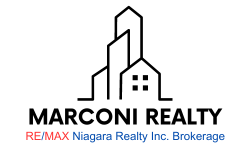As a seller, it’s important to get clear on your expectations when it comes to successfully disposing of your property. Asking yourself important questions can help you to set reasonable goals. Here’s a sample list of questions you can answer to get you started:
Why do you want to sell the property?
Are you in a rush/no rush to sell? What is your timeline for closing the transaction?
What are your plans after selling? Are you buying another property? Does the selling and buying have to coincide?
What date would you like to have the home on the market?
What is your ideal closing date?
What is the list price you have in mind for the property for sale?
What is your minimum selling price?
What improvements have you made to the property? When were they made? Do you have permits?
How long have you owned the property?
What are the issues with the property?
What are you willing to do to make your property appealing and sellable?
Will you or someone else be making decisions on the sale of this property?
Material Facts Checklist:
A material fact is, “a fact that would affect a reasonable person’s decision to acquire or dispose of ” an interest in real estate. Below are some examples of common material facts to be aware of and disclosed when it comes to selling your property:
Structural conditions:
* age * roof leaks * mould
* foundation damage * insects
* electrical deficiencies * water seepage
Outdated hazardous materials:
* asbestos insulation * knob-&-tube wiring
* lead/Kitec plumbing
* underground storage tanks
Discrepancies in building and/or dwelling measurements cited in listings
Previous use of a property:
* grow-op (or other illicit activity)
Zoning:
* bylaws * land use * fence height
Private limitations:
* easements * restrictive covenants
Government limitations:
* HST * property taxes * expropriation plans
Alterations:
* renovations completed without permits
Nearby businesses that may impact quality of life (e.g., loud noise from an airport)
Additional Expenses to Consider:
Third-party expenses may be involved in the selling of a property, such as the service costs of a home stager, lender and survey. There are also moving expenses and likely adjustments made on closing by the lawyer to keep in mind when budgeting.
The Harmonized Sales Tax (HST) or Capital Gains Tax (CGT) could be applicable to the sale. For example, HST is applicable on select services such as lawyer fees, brokerage fees or remuneration (if applicable) and moving costs. CGT is applicable to any capital gain realized on the sale of a seller’s rental or investment property or non-principal residence. The capital gains tax can create closing complexities if the seller is a non-resident. The seller is advised to contact their accountant for an estimate of the payable tax.
Comments are closed

